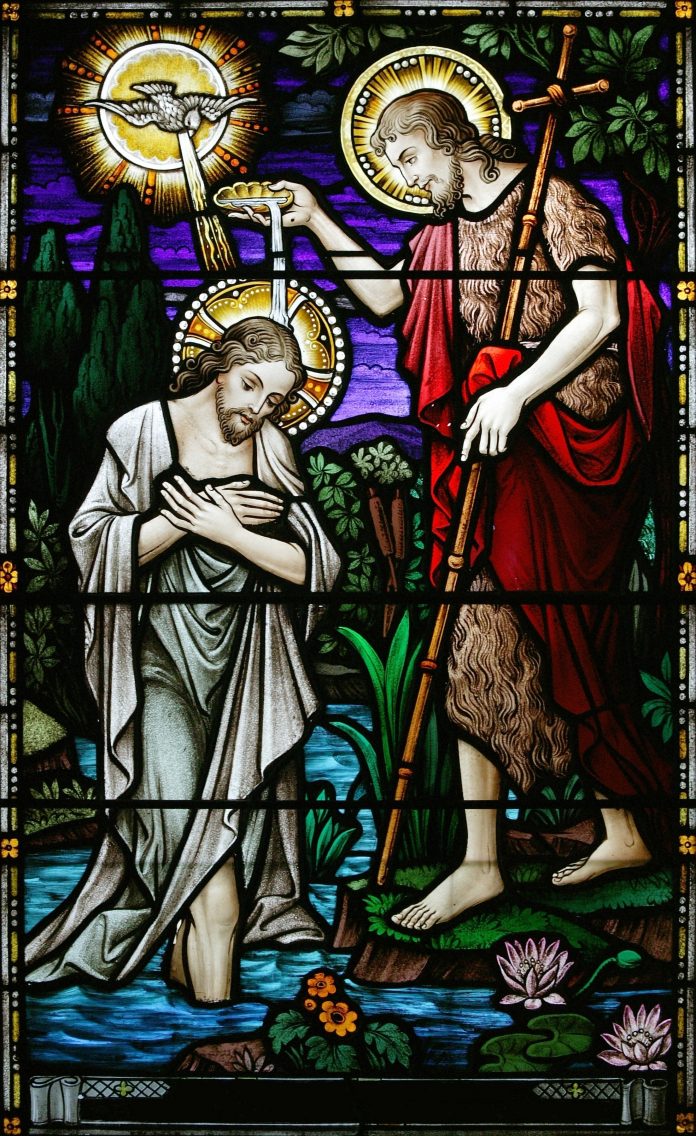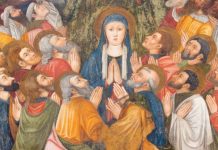
by Sister Alice Pfeifer, CSA
This Complete-A-Project Bible Search Activity is for teacher and students (grades 4-6) working together. The exercise can be completed using the Bible to find the answers. Bible Searches for this learning year focus on Gospels from the current liturgical year and feature episodes in the lives of Sister Vicki and two students in her religion class, Hugo and Hannah.
Background
* John 10:27-30 (proclaimed on the Fourth Sunday of Easter this year, April 25) is from a chapter in which Jesus describes himself as the Good Shepherd. Good here means “just” or “loving,” not “talented” or “gifted.” For example, a baseball player might be “good” because that person bats and fields well. Or the person might be “good” because he or she is kind to teammates and fans. Jesus means “good” in the latter sense—the moral sense.
* Shepherds were peasants in Jesus’ time, and the Pharisees, who opposed Jesus, were among the rich. To all people—rich and poor—Jesus taught that great wealth with little faith is nothing really.
* Our picture of Jesus as the Good Shepherd is better understood when we consider the ordinary duties of a shepherd in Jesus’ time. The shepherd slept with his sheep day and night—and probably even started to smell like them. (No wonder rich people looked down on shepherds!) The shepherd protected his sheep from slaughter by wild animals and from theft by criminals interested only in the money they could make by selling the sheep. A shepherd sometimes risked his own life to save his sheep from wolves, lions, or thieves. He led his sheep to pastures with sufficient grass and water for their survival. He found them cool pastures in the summer’s heat and warm pastures in winter’s cold. He counted his sheep at the beginning and end of every day to make sure that none was lost. He sometimes even named each of his sheep.
* Jesus compares his followers to sheep because they are as attached to him as sheep are to their shepherd. Sheep answer only to the voice of the shepherd. They don’t listen to anyone else.
* As the Good Shepherd, Jesus is willing to do everything necessary to keep his sheep alive and healthy, now and for all eternity. He is as attached to his sheep as he is to his Father in heaven, who has given him the sheep in sacred trust. His Father, quite simply, is depending on Jesus to care well for the sheep of his flock and to lead them to eternal life.
MATERIALS
* Activity sheet below, one copy for each student
* Copies of the Bible (The Search is based on the New American Bible.)
* Pencils or pens
PROCEDURE
1. Before class, read the set-up on the activity sheet. Then begin class by having students do the same burning-house exercise that Sister Vicki does with her students.
2. Read or have volunteers read the set up to the fill-in-the-blank activity.
3. Share the information in Background above.
4. Because the Gospel is short, do something different with it. Have students close their eyes and listen closely as you read aloud John 10:27-30. When you are finished, have students see if they can complete the fill-in-the-blank activity by remembering what they just heard. Then let students check their words by looking up the passage in their Bibles.
5. Read or have volunteers read the conclusion to the story.
6. Ask the group to suppose that Jesus is a guest on a TV talk show. The host asks, “What exactly do you do for your followers?” To find out Jesus’ answer, have students decode a message hidden in the fill-in-the-blank activity. They need to circle every third fill-in word. (The answer is, “I give them my all.”)
7. If you wish, hand out papers with a picture of the Good Shepherd on them. (Some good clipart is available in books, but also try downloading the free online clipart at gospelgifs.com/clips/clipz2/clip2030.htm.) Around the margins of the picture have students write in large, decorative letters, “I give them my all.”
ACTIVITY SHEET
Jesus, the Good Shepherd
“Diary. iPod. Pink Nikes. U.S. Olympic Team hoodie. Gemstone rosary from Grandma.”
This is what Hannah quickly wrote down when Sister Vicki asked students to list their five most precious possessions.
Hugo wrote “Zack” (the name of his dog)—but couldn’t think of anything else to add.
His little beagle was on his mind because Hugo had just spent his entire savings to rescue Zack from the pound. It was money he had been saving for months for a guitar, and now he’d have to start saving all over again! Yet, in his heart, he knew that the lovable, mischievous Zack had been worth every penny.
So it was only with some effort that Hugo could think of four other things to list. In the end, Hugo came up with the Spanish Bible that used to be his dad’s, his iPod, a baseball glove from his cousin, and his scout uniform.
When all the students were finished making their lists, Sister Vicki said, “Now circle the one possession you’d take with you out of a burning house if you had time to grab only one thing.”
The class protested, saying that they could easily grab a few things, not just one, in the case of a fire. But Sister insisted, “No, this fire is raging!” Then she flapped her arms up and down, as if mimicking a wildfire, and added, “You have time only to find and carry out one thing.”
Perplexed, Hannah squirmed in her desk. Her diary had all her most personal thoughts written in it, but the rosary from her grandma was a precious treasure.
Hugo, on the other hand, had no problem immediately circling “Zack.” From almost losing the little dog forever, he knew that Zack was worth more to him than anything else in the world.
Sister Vicki then explained why she wanted the students to think about what was most precious to them. It would help them better understand a Gospel passage about what was most precious to Jesus. After reading and discussing John 10:27-30 with the class, she gave students a handout for review.
“My _________ hear my _________; ____ know them, and ________ follow ____. I _______ them eternal life, and they shall never __________. No _______ can take ________ out of _____ ________. _____ Father, who has _________ them to me, is ___________ than ______, and no one can ________ them out of the ___________ hand. The Father and I are one” (John 10:27-30).
After class, Hugo was still thinking about Zack. When Hannah caught up with him in the hallway, Hugo told her all about Zack’s recent rescue from the pound.
“Wow,” Hannah exclaimed with wide eyes. “What a close call!” And then, with sudden insight, she added, “Hey, you know what, Hugo? You were acting just like Sister Vicki was saying—just like the Good Shepherd. You gave up everything you had to save your dog.”
“Hmm,” Hugo slowly replied. “I never thought of it that way, but—yeah.”
Continuing their walk down the noisy hallway, the two friends fell into a moment of silent wonder. Both knew that Hugo thought the world of his dog—yet Hugo’s great attachment to Zack was only a shadow of God’s love for them.
Answers to Fill-ins: sheep, voice, I, they, me, give, perish, one, them, my hand, My, given, greater, all, take, Father’s
Sister Alice Pfeifer, CSA
Permission is granted to copy this Bible Search for use with your students and their families.
Copyright 2010, Bayard, Inc. All rights reserved. This article is protected by United States copyright and other intellectual property laws and may not be reproduced, rewritten, distributed, redisseminated, transmitted, displayed, published or broadcast, directly or indirectly, in any medium without the prior written permission of Bayard, Inc.
This article was written by the Catechist Staff and appeared in Catechist magazine, February 2010.
Image Credit: Shutter Stock 6709591




